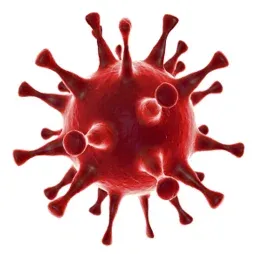Article on Outbreak of Epidemic in your Area (WASSCE)
2. There has been an outbreak of an epidemic in your area. Write an article for publication in the health magazine stating the causes and effects and suggesting what should done in order to eliminate it. (WAEC WASSCE 1995)
The below is just a sample of a written article for publication in a health magazine. You can use it to model yours.
CHOLERA OUTBREAK - CAUSES, EFFECTS, AND SOLUTIONS
The term "epidemic" refers to a situation where many people are infected with the same disease at the same time. In my neighborhood, there has been a cholera outbreak. Severe diarrhoea and vomiting are the most common symptoms of this epidemic, which is spread through contact with contaminated water. Vomiting and diarrhoea occur simultaneously. The cholera outbreak is out of control, and people are dying because of the situation. More people have died from this epidemic than from HIV/AIDS or malaria. According to a recent survey by the Ghana health service, thousands of people have died because of the outbreak. Every day, more people are being killed by the current outbreak of cholera that began a few months ago.
Poor sanitation is to blame for the cholera outbreak. Everywhere you look, you'll find a significant amount of rubbish. Poor drainage systems, clogged gutters, and rubbish littering the streets are to blame for the problem. Garbage and filth cannot be collected because there aren't enough waste bins, or they aren't readily available on the streets. As a result, there is a lot of rubbish on the streets, including the main thoroughfares. There is a lot of pollution in the waterways when it rains. The Accra Metropolitan Assembly and the Environmental Protection Agency are two examples of state agencies that have been ineffective in dealing with this problem. The poor state of sanitation is also a result of the general public's negative attitude. The gutters are littered with the waste of those who do not notice or refuse to use the garbage bins around them. The cholera outbreak in the country has clear antecedents in the filthy streets and overflowing drains.
A lack of potable water is also a problem in this area. Along riverbanks, people defecate. Because there aren't any public restrooms nearby, those who need to relieve themselves defecate on riverbanks. When it rains, the faeces end up in rivers. In many cases, the victims of the outbreak are the people who collect the contaminated river water and use it for their daily routines.
Cholera is also caused by poor personal hygiene and the selling of food near unsanitary gutters. It's an eyesore to see food vendors selling their wares near filthy, clogged gutters. Fly contamination is common in these foods, which are then sold to the public. Also, because they eat with dirty hands, these diners are putting themselves at risk of getting sick.
As previously stated, the cholera outbreak has claimed the lives of many more people than the epidemics of HIV/AIDS and malaria combined. The social impact is the most obvious loss of individual lives; there are those who lose their parents and children. While the loss of a child denies parents the joy that comes from their children, the loss of a breadwinner and financial support for a child can be devastating. Such a child may eventually fail to complete their education. Additionally, the death toll is accompanied by a depletion of vital human resources. Men who are physically fit have been affected by this illness, and they are unable to get up and go to work. Naturally, productivity is going to be poor.
Building public toilets in urban and rural areas and villages can help prevent cholera outbreaks by reducing the amount of human waste being dumped into rivers. People will feel compelled to relieve themselves in public restrooms rather than on riverbanks now that they are available in these locations. State agencies and institutions tasked with protecting the environment must also become organised. Laws requiring strict adherence to sanitation standards must be enacted and strictly enforced. Clearing clogged, unhygienic gutters and increasing the number of waste bins on the street are two important steps that must be taken. As a result, the government or the stakeholders of an area must provide bore-hole water. To keep the spread of disease at a minimum, people should only eat hot food and do so with clean hands.


.webp)







No comments: